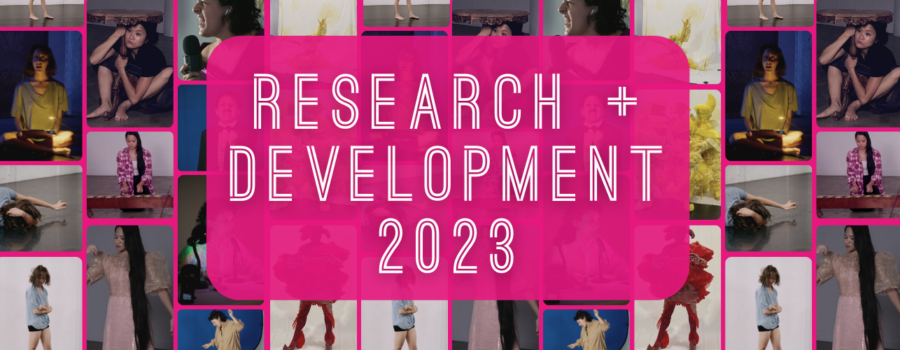Los Angeles Performance Practice is excited to announce the next round of RESEARCH + DEVELOPMENT (R+D): EARLY PROJECT SUPPORT. This year we have two offerings under this program: R+D and R+D: For Parents/Guardians. Both are designed to support the creation of new work by Los Angeles-based performance makers in the early stages of a project’s process. Through R+D, we aim to provide seed support to artists who are committed to live performance, and who are looking to develop their work locally. R+D matches artists with their needs through direct collaboration. Our mission continues to be anchored by a devotion to the production and presentation of contemporary performance by artists whose work advances and challenges multi-disciplinary artistic practices. Artists must primarily reside in Los Angeles County.
As preparation for the process, we have compiled some FAQ’s for folks interested in submitting! If your question is still not answered by reviewing the full details on the webpage or these FAQ’s do not hesitate to reach out to Patricia Garza, Director of L.A. Programs at Patricia@PerformancePractice.org.
R+D FAQ’s
Q: What are the differences between R+D and R+D: For Parents/Guardians?
A: R+D will provide two projects with a $1,600 stipend plus additional support that will be tailored to best meet the artists’ needs. This could look like collaborator stipends, a workspace, project documentation, etc. The activities and support will take place over a period of approximately two weeks.
R+D: For Parents/Guardians will provide two projects with a $1,200 stipend, a $800 contribution towards childcare expenses, and one week in a workspace.
Q: Do my days in a workspace need to be consecutive in nature?
A: No, this can be structured to serve the project or artist best, but would not exceed 80 hours for R+D and 40 hours for R+D: For Parents/Guardians.
Q: Do I have to submit 3 work samples?
A: No. We do require 1 sample, and you have the option to submit up to 3.
Q: Who are the Los Angeles artists on the review team?
A: Often we engage artists who have participated in the R+D program previously, if available, or other local artists who are familiar with contemporary performance/multi-disciplinary artistic practices.
Q: What stage of a project is best served by this program?
A: The project can be at any stage in its process, but we feel this program’s resources are best scaled towards early stages in its development journey and the research and ideation phases. We have found that proposals at the stage of needing major production support tend to be too large in scope to be supported by this particular program offering.
Q: Is there a public sharing requirement attached to this opportunity?
A. Absolutely not! This is about what serves your process best. Often we have found by taking off the pressure of presenting the artists can best utilize the time to focus on development. If a public sharing is desired as part of your process, we encourage artists to make that explicit in their interest forms.
Q: Can I save my interest form and come back to it?
A: Unfortunately no. We encourage all folks to save their work on a different platform or word document and transfer responses when they are ready to submit.
Q: Can I submit more than one interest form?
A: We encourage artists to only submit one form. We want to honor our reviewing team’s labor and time. We highly advise you to submit the project you want us to consider.
Q: How are the stipends determined for this opportunity?
A: In projects that LAPP produces, we aim to provide a $20/hour rate for artists, and have taken that into account when designing these program offerings.
For R+D – the timeframe is approximately 80 hours, therefore the stipend rate is $1,600.
For R+D: For Parents/Guardians – the timeframe is approximately 40 hours, therefore the stipend rate is $1,200.
Q: Are there word count requirements for the open-ended questions?
A: No, word limits are not in place for questions on the interest forms in order to have participants focus on the quality of responses, versus spending time editing. This decision is in the spirit of our commitment to equity, allowing artists to express themselves in a way that works best for them. We highly encourage responses that are simple and direct. There is no expectation of receiving long responses.




